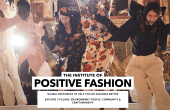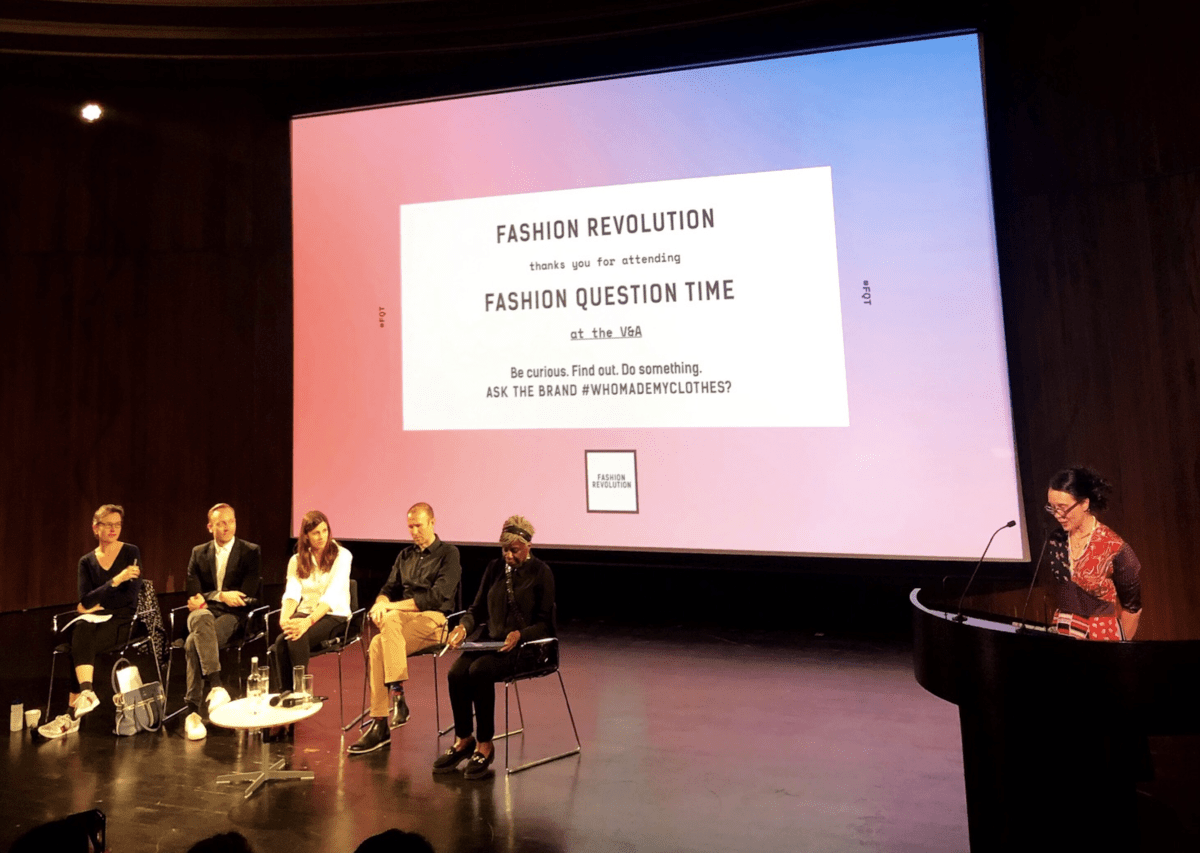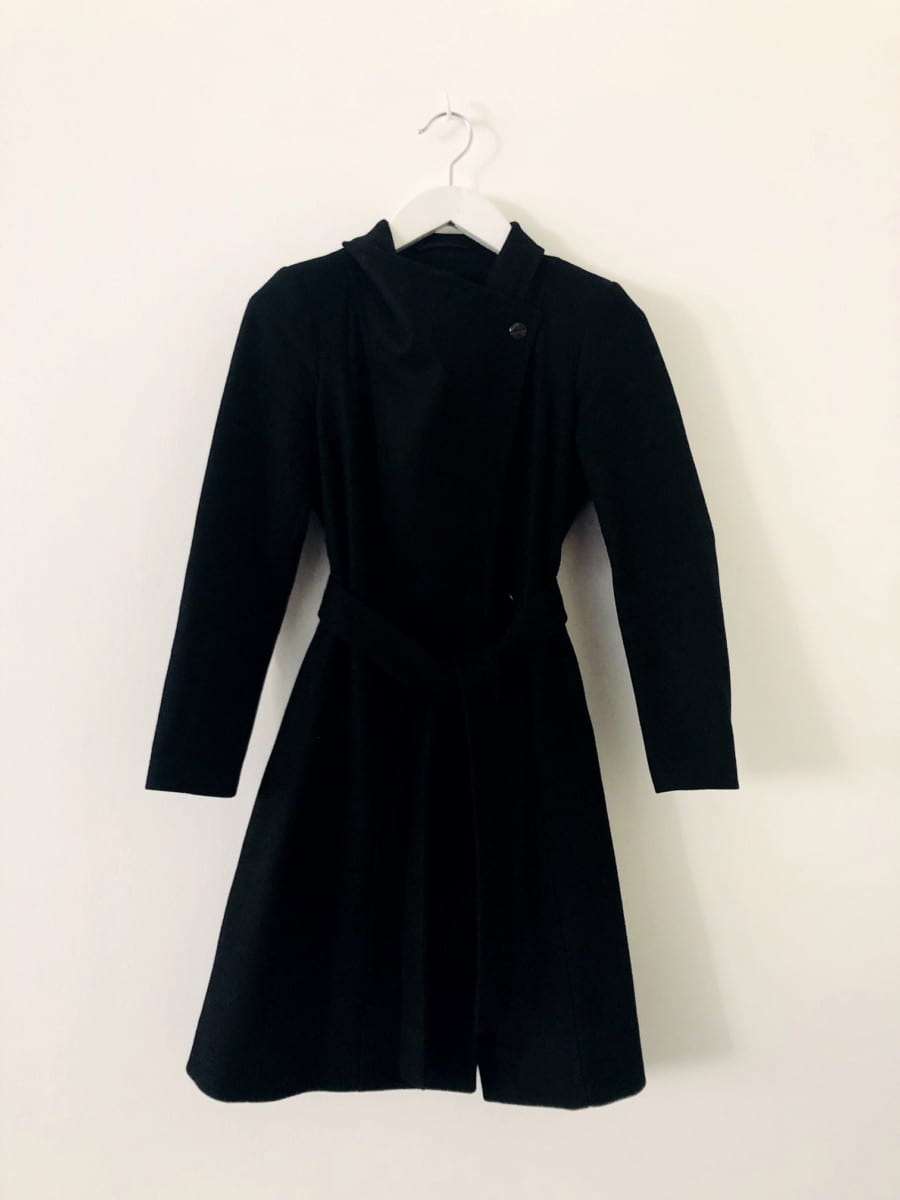Lou Stoppard is SHOWstudio’s Editor and a freelance writer and broadcaster. She completed her undergraduate degree at Oxford University, earning a first class BA in History, before moving to Central Saint Martins College to pursue a Master’s degree in Fashion Journalism. She has written for titles including ELLE, ELLE Collections, GQ Style, Stylist, The Times, Dazed & Confused, i-D, Varon and Bon. Stoppard is particularly known for her interviews and has conducted written and video conversations with the likes of Philip Treacy, Stephen Jones, Sir Paul Smith, Dylan Jones, Jeremy Scott, Nicola Formichetti, Jonathan Saunders, Roksanda Ilincic, Alexandra Shulman, Daphne Guinness, Bryan Ferry, Lady Amanda Harlech and Phillip Lim, amongst many others. So it is with such great pleasure that I introduce her here on my blog.
Of course fashion matters. On a very straightforward level it matters simply because of the jobs and income it generates. That’s something the often-brilliant Charlie Brooker totally missed when he declared in The Guardian, ‘If the fashion industry truly cared about the future of our planet, it would issue a solitary line of unisex, one-size-fits-all smocks, then shut down for good.’ Sure that makes for a great line – a fun quote for Twitter, a punchy excerpt to keep his editor happy – and I’m sure the appeal of that made it easier to overlook the 816,000 people who are employed in the UK fashion industry – it’s our second biggest employer – or the 27 billion it generates to the economy (based on a report from 2010). I doubt he’d say the technology industry – which is increasingly taking leads from the fashion community with its seasonal drops – would be better off if we all just agreed to use the standard, pretty functional Nokia 3310 or that the music industry would be great if we all just accepted that Pulp were as good as it’s ever going to get. Well, maybe he would. But if so it would only be because it would make a good headline. And fashion always makes a good headline because it’s easy to criticise and hard to defend.
Fashion is about surface decoration so one can always call it frivolous. And because it’s ‘frivolous’ the debate that it’s wasteful/immoral/vapid will limp on and on amongst journalists and agitators who care to see little more than horribly thin models and designers with bumptious egos. You’ll never make people who think like that see any of the more romantic benefits of fashion – its role in reflecting contemporary moods, its penchant for accepting and promoting oddballs and mavericks – Leigh Bowery, Isabella Blow, Rei Kawakubo – in the face of an increasingly sanitised cultural landscape, its use as a vehicle for speaking without words. You certainly won’t see them acknowledge the huge number of people who rely on the industry for their daily bread because it doesn’t make for as good of a story as the accusations of environmental damage and sweatshops or the endless mocking of out-there catwalk looks and stupid, insensitive editorials (of which, I will admit, there are far too many).
 Still from SHOWstudio’s ‘Girly’ series
Still from SHOWstudio’s ‘Girly’ series
I’m tired of the argument that fashion is pointless. It’s lazy, patronising journalism. People, non-fashion people, queued through night and day to see the Alexander McQueen ‘Savage Beauty’ exhibition at the Metropolitian Museum of Art because they felt something when looking at Lee McQueen’s clothes. They identified with something in the emotion of the work. It touched them. It was visceral.
Punk wouldn’t have happened without fashion. Neither would the Club Kids. Neither would the Riot Grrrls. Neither would pretty much every subculture. For people who don’t have the way with words Brooker does, a t-shirt or a safety pin can be a ticket to actually saying something. Sure, ‘Never Mind the Bollocks’ is a great record, but Johnny Rotten would have been nothing without a mohair jumper and a ripped, pornographic t-shirt from Sex on the King’s Road. Clothing is about self-expression – even if that expression is simply, ‘I don’t care about how I look’ – and to take that right away from people would be censorship. Brooker is the first to rile against conformity and standardisation so I’m surprised he wants us all in uniform smocks, in fact that sounds like something that would go in a ‘Black Mirror’ plot.

Still from SHOWstudio’s ‘Girly’ series
I’ve been musing a lot on the way feminists have interacted with, and on many occasions exploited, fashion to make their points, whether it’s by forgoing tops and bras, as with the Free the Nipple campaign, or by reclaiming certain looks, garments or styles as the aforementioned Riot Grrrls did. On SHOWstudio recently Nick Knight and I commissioned a series called ‘Girly’ that sought to investigate and analyse fashion’s relationship with overt, cartoon femininity using the recent work of designers like Ryan Lo and Meadham Kirchhoff as a starting point. I’m lucky enough to edit a platform where we can include a variety of strong, maybe even strident, options on the same subject and embrace the fact that some of them may contradict each other. Some women saw the fluff, florals and faux fur of the designers who fetishise girlishness as a tool for self-expression, a way to reject the male gaze and reclaim femininity – in summary, they saw it as a useful, important choice – others, maybe including myself looking back, saw it as something that is in someway or another reflective of regressive gender ideas, something that is subconsciously informed by the adverts and ideals of a patriarchal society, something that can reduce women to fantasies. Choice is certainly slippery – I will always think that – but what struck me most about the series was the individual passion and conviction with which women addressed and selected their clothing and fashion. I came away from the series not really sure how I felt – and in that confusion I felt excitement.
What I do think is that women need to make smart, conscious choices with their clothes. I’d love to say that we should be able to throw on whatever we want and not be viewed in a certain way. I hate the way women are forced to be extra careful when we make choices because of the behavior or prejudices of men – as the vital and oft-repeated argument goes, don’t teach women not to walk home alone, teach men not to rape – but I think we need to reconsider and reclaim that problem when it comes to fashion. We need to acknowledge that while it’s frustrating that our outfit choices will always be more discussed than those of men – I can’t imagine how annoying it is for female politicians to be reduced to dolls on the ‘Downing Street Catwalk’ when no one gives two hoots what dull tie or heinous leather loafers David Cameron wears – we can make a real statement with our clothes. We can say we want the planet to be more sustainable. We can say we don’t want to be viewed as sex objects. We can say we don’t accept conventional gender ideas. We can say we’re comfortable in our sexuality. We can say – like many of the women featured in our ‘Girly’ series are doing – that we don’t feel like we should dress like a man to be taken seriously. In summary, we can be optimistic, forceful and active in the consideration we have to put into our clothing. Sure not everyone may get it or understand what we’re saying, but that should never stop us from saying it in the first place. No great voice ever held back for fear their message would be too complex. In ‘Political Fashion’, a truly brilliant SHOWstudio project that was dreamed up long before I joined the team, Tamsin Blanchard sums it up perfectly when she says, ‘The ability to make a statement with your clothes, are as strong as ever. It is simply up to us to be as engaged with the issues or as blissfully ignorant as we like.’
I don’t buy the argument that fashion is forced upon women. I actually think that’s sexist and presents us as ill informed and passive. Sure, too many women don’t have the freedom of choice they deserve in lots of areas of their lives, but the idea that lots of women can’t make their voices heard with their clothes is simplistic. It’s offensive both to men and women to repeat tired old arguments like the one that gay male designers design for fantasy not reality so aren’t sympathetic to the female form or women’s lives and so on. We’re not forced to buy clothes if they’re regressive – women can buy new or vintage, highstreet or designer, we can customise or make our own stuff from scratch. The ability to find clothes that reflect your worldview and ideas has never been greater. We can tell shops and brands we don’t like their ethos by simply not shopping and we can certainly kill off regressive trends over time by not buying into them. Sometimes that process can be difficult or tiring; the messages we create and cultivate with our clothes can get confused or be misunderstood. But that’s fashion, isn’t it? It matters because it is complex, full of subtlety and nuance, intrigue and mystery. Always walking a fine line between one idea or mood and something totally different – romance and darkness, simplicity and mess, serenity and chaos. Even when it’s streamlined and minimal, as fashion so often is these days, it’s never simple.

Lou Stoppard, writer and Editor of SHOWstudio
http://showstudio.com/project/girly




